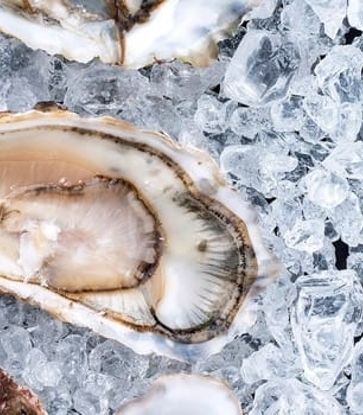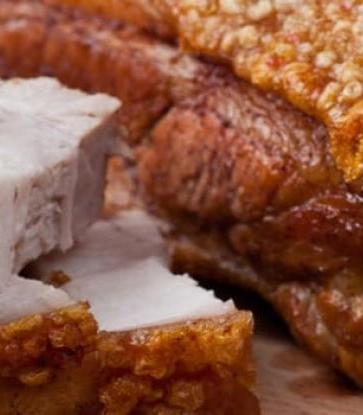And while sugarcane is one of the most common sources of sweetening agents, our planet is certainly not bereft of other options. (Think along the lines of the stevia, monk fruit and even brown rice.) These tout greater health benefits and can even be enjoyed unprocessed. Here’s where to start:

Extracted from the plant Stevia rebaudiana, this sweetener has been used by South America’s Guarani population for more than 1,500 years. They call it ka'a he'ê, literally ‘sweet herb,’ and it’s potency will certainly not disappoint sweet enthusiasts as its 200-300 times sweeter than normal sugar.
Bonus: stevia is commonly used as treatment for ailments like stomach problems and Diabetes, among others. It has a high protein content, is highly soluble and heat resistant.
In short, it’s seemingly the perfect substitute for sugar. No wonder the global stevia market is projected to reach a valuation of $560 million by 2020, accounting for 15% of the sweetener market.
The drawback? It carries bitter notes that currently cannot be eradicated through processing, a flaw that contributed to the failure of Coca-Cola’s Coke Life.
That said, this doesn’t dampen stevia’s potential, however. As of now, relatively little research has been conducted so there’s reason to hope yet that its bitter aftertaste will be solved.
Date Sugar
In its literal form, date sugar is made from dried and ground dates. It is insoluble in water and cannot be melted, which limits its usefulness in baking. But those who prefer to know what exactly goes into your food would delight in the fact that it's a sweetener that can be made at home. Simply bake the dates and leave it to dry overnight for it to harden, and then grind it down into a powder using a food processor or a coffee grinder.

Humans have been collecting honey for thousands of years. Archaeologists have discovered honey remains from ancient civilizations including Egypt and Rome, typically used for embalming, offerings, wound dressing—and, food sweetener. Unfortunately, its enduring popularity and appeal also means that the market is flooded with adulterated honey sold alongside (sugar additives, when heated, damages its natural enzymes).
Molasses
Molasses is a byproduct of refining sugarcane. It is rich in minerals and vitamins—including iron—and low in fat. Out of all the different kinds of molasses, unsulphured molasses is the most natural and Blackstrap the most nutritional. For those who subscribe to traditional Chinese medicine, molasses is believed to be beneficial for those with a Yang-deficient constitution.

Another staple in traditional Chinese medicine, the monk fruit has gone global. Though you may not have noticed this trend as we are used to consuming this cheap, anti-oxidizing fruit for homemade remedies, in the West, it is being hailed as the best natural sweetener. It is effective for being more than 200 times sweeter than sugar without affecting blood sugar levels. With a market value of $65 million, it is a rising star. However, its production cost is twice as much as stevia’s, and many, many times as much as man-made sweeteners.
Xylitol
You might have heard of this term from dental care commercials. Surprise: it is actually a sugar alcohol used as a sweetener. Before you denounce the commercials, know that studies have found that Xylitol really decreases teeth cavities and can be found in many types of fruits and vegetables. As it is still a sweetener, overconsumption is not a good idea, particularly those with Diabetes and gastrointestinal issues. Dog owners, beware: Xylitol can be fatal to your pet.
Inulin
Inulin can be extracted from plants like chicory, and carries a level of sweetness that is only 10% of typical sugar. It can be used to stimulate bowel movement, but ingesting more than 10g a time causes diarrhea.
Indeed, this sweetener is extracted from the agave plant. Sweeter than honey in taste, but more difficult to be digested, some people approve of it because it is potent but does not increase blood sugar levels. It is important to note that many ‘agave nectars’ sold on the market are actually extensively processed, making them chemical fructose, which depletes your body’s minerals, and causes other health problems.

This sugar is produced from the sap of cut flower buds of the coconut palm. It contains the same amount of calories as cane sugar, but has a much higher level of amino acids, minerals and vitamins.
Maple Syrup
With a texture similar to honey, maple syrup contains up to 24 different types of antioxidants. Recent research has found that it protects brain cells, which could help to prevent Alzheimer’s disease.
Brown Rice Syrup
Brown rice is widely known as a healthy food; it lends its fame to the sugar it creates. Unfortunately, it is still being questioned as to whether or not it contains arsenic—consult your doctor should you consider adding brown rice syrup to your diet.
Lucuma Powder
Made from Lucuma, a subtropical fruit native to Peru that tastes somewhat like mangoes. It's been used for its medicinal properties in South America for centuries and contains 14 essential micronutrients in addition to cellulose and minerals. As a sweetener, it doesn't raise blood sugar levels making it a suitable option for diabetics with the guidance of a health care professional.
Artichoke Syrup
Jerusalem artichokes can be found along the Mediterranean coast; the syrup extracted has a slightly nutty-like flavor with notes of maple. The fairly new product contains prebiotics, which feeds the probiotics in our digestive system.















